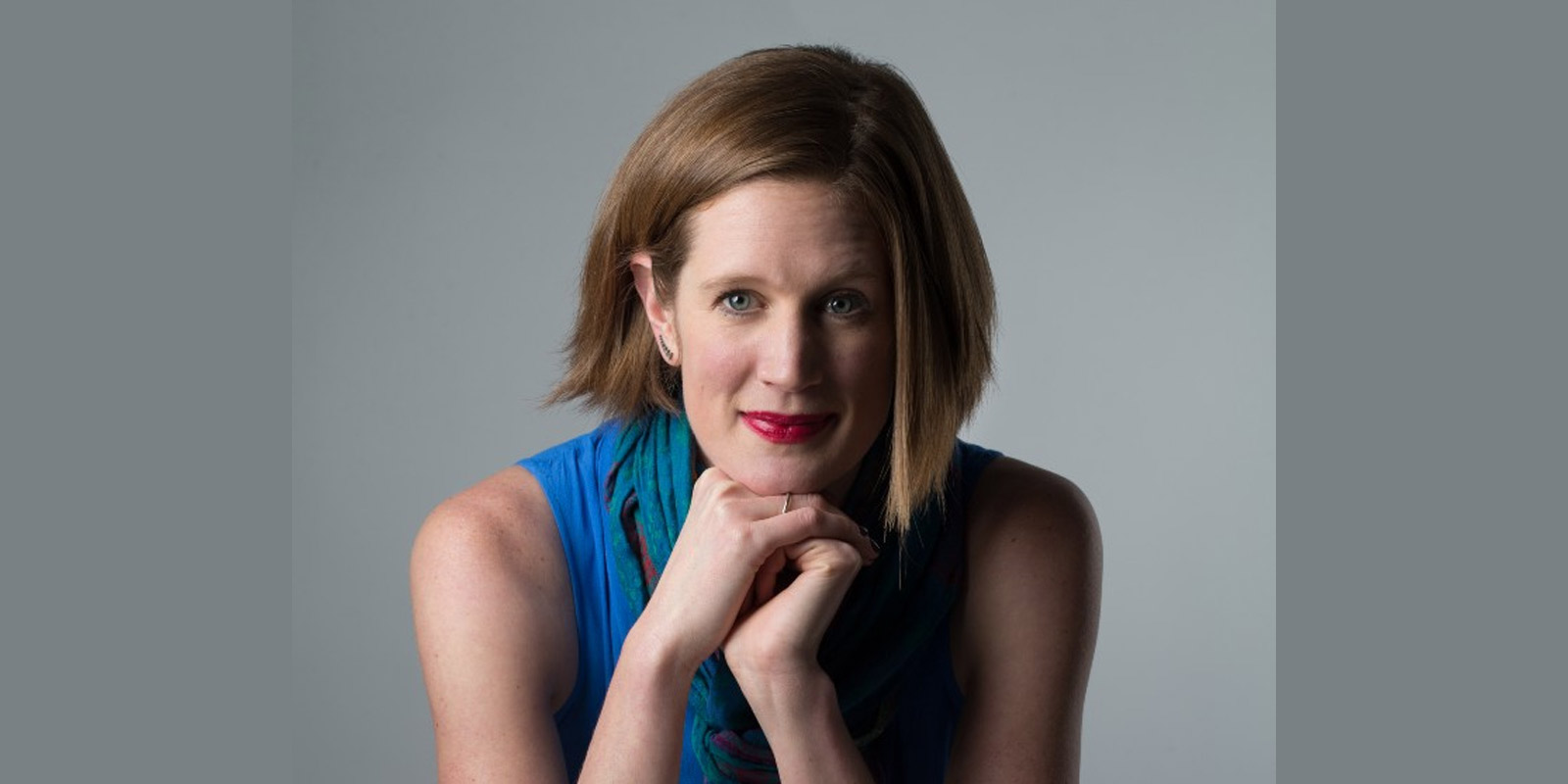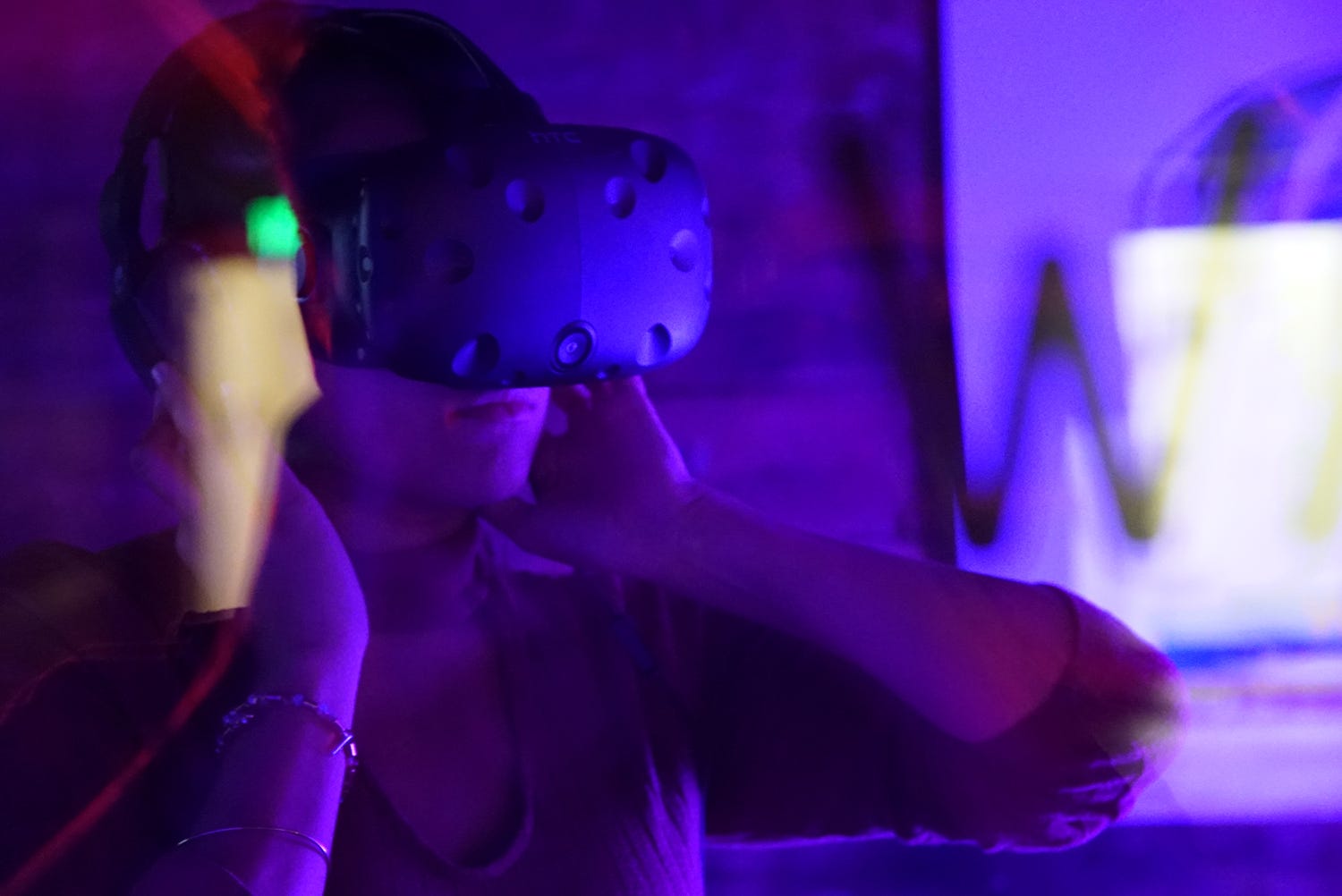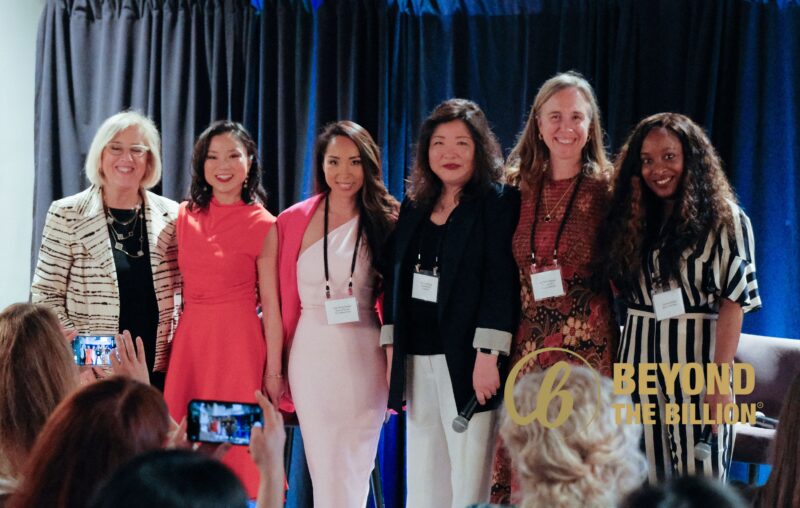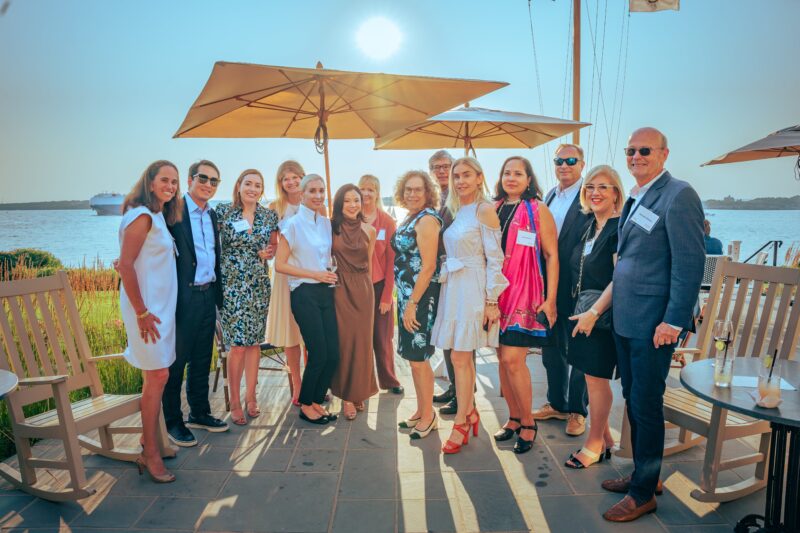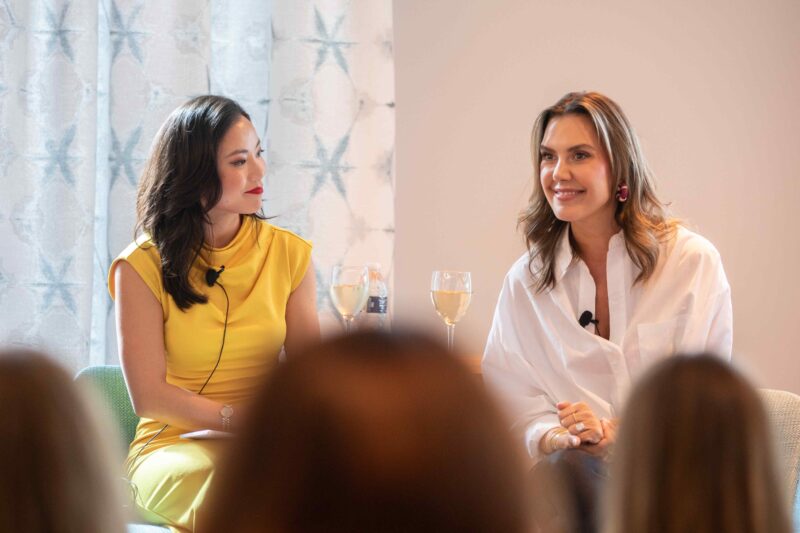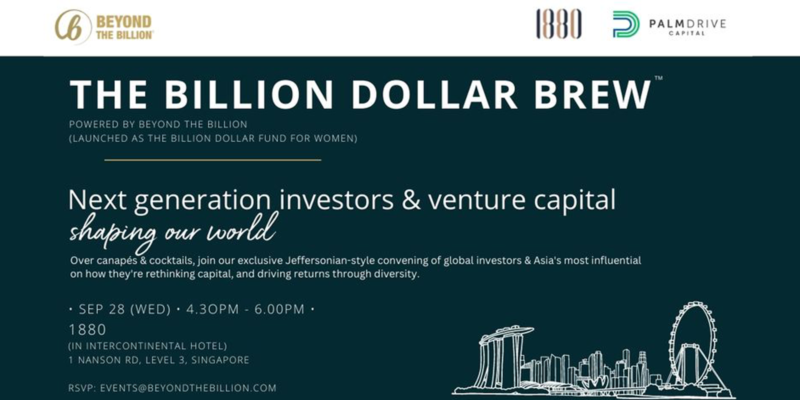By: Karina Chan
The Billion Dollar Fund’s featured female funder of the month is an entrepreneur with an exit under her belt, an advocate for diversity and inclusion, and most importantly a co-founder of a fund primed to bring the future of technology into fruition. Martina Welkhoff(@welkhoff) is a Founding Partner at Women in XR (WXR)(@WXRfund), an early-stage fund that invests in companies transforming businesses and human interaction by leveraging spatial computing and artificial intelligence. They invest in women leaders who are changing the way products are built and companies are run. The WXR Fund is at the intersection of the unique convergence of these growing areas.
5+ years Board President of Women in Tech (Seattle), board member of Seattle Angel, and advisor to the Center for Leadership and Strategic Thinking at the University of Washington. Featured in Forbes and Time. Martina has no shortage of experience and exposure.
Utilizing her expertise in entrepreneurship, Martina’s unique approach to managing a fund is a breath of fresh air in an industry that has much to improve upon but doesn’t. For example, WXR also has a 2-year old accelerator. Why? Read our interview below to learn more about her logical yet idiosyncratic approach to investing.
Q: Why does WXR have an accelerator? Isn’t it supposed to be a venture capital fund?
A: When we were floating our thesis early on in late 2017, the primary skepticism and pushback we were getting were about whether there were enough women in the space to justify a fund. That was where my entrepreneurial inclination came into play. Noticing that this was one of those cases where this doesn’t exist yet, we built an MVP! We decided to start an accelerator in order to build that data set and our credibility as fund managers that could generate deal flow. We launched that in 2018 and had sixteen companies go through it. Really fantastic companies and incredible entrepreneurs allowed us to build our data set and refine our thesis. Moving forward, we decided to add AI to our thesis as well and are really positioned as a future of computing fund focused on the entire computing paradigm, rather than just VR and augmented reality (AR) components.
Q: How has your prior experience aided you in being a more effective fund manager?
A: I think I have an understanding of the journey that other entrepreneurs go through on a deep level. That empathy and practical knowledge of the types of challenges they’re facing has been very useful in providing guidance and support to the entrepreneurs we’re working with. Where it hasn’t translated as directly surprisingly has been the fundraising process.
Q: Why did you found WXR?
A: I moved from mobile gaming into virtual reality because of the potential I saw while I was an entrepreneur building companies. I saw tremendous potential for virtual reality to transform the way we use technology and bring us back to a more fundamentally connected and intuitive place and that was very exciting to me. Early on when I started a VR production company, I connected with Marco DeMiroz of the Venture Reality Fund who ended up being a very important catalyst in this whole process. He actually introduced me to Malia Probst who became one of my co-founders for WXR. Malia is a partner at VRScout and has been an influencer in this industry for years.
Malia connected me with Abby Albright who became the third co-founder in those early days and the three of us along with Marco really found strong alignment in the unique opportunity we saw with XR investing in women early. As the whole industry was very nascent and malleable we wanted to normalize women in leadership and change, not just the perspective, the reality that most of technology is male-dominated and that’s where a majority of venture capital is going. We really wanted to challenge that and leverage the unique economic opportunity that investing in women provides. We saw this great window of opportunity, a time-limited window in these early days, to get in at the ground floor. We hope to make an outsize financial and social impact because of the timing of this fund. It was the confluence of that value alignment and this time-limited opportunity that convinced us to go for it.
Q: What experiences in your life, jobs you’ve had, people you’ve heard speak on the issue convinces you that specifically, this women in XR/AI niche area is the right one to be in?
A: Certainly being a woman founder and having the first-hand experience was part of it. As I built my first company, more and more women were also building scalable tech companies and facing challenges with fundraising as well. Seeing how amazingly hardworking, capable, and inspiring the women I was connecting with were — it clicked for me. Companies with women on the founding team end up having different perspectives represented in foundational kinds of decisions the company has to make when it’s getting off the ground. Having diversity strengthens the overall results of how those decisions are made. It minimizes the blind spots and helps round out the types of experiences and skill-sets that are represented. I am especially passionate about gender in part because of my personal experience and my network. There are more data and great research emerging all the time. I think at this point there’s a body of evidence that fairly definitively shows that teams with gender diversity outperform homogenous teams.
Q: On AI and computing, how do you tell the legitimate companies from the ones that are just using these hot new tech buzzwords?
A: It reminds me of “big data” seven or eight years ago — a similar sign of hype at the moment. There are a lot of pitches that slap on “AI” to make it seem a little sexier but when you peek under the hood maybe there’s not much going on technically. So one of the screens we look for when we begin diligence on a company is whether or not there’s fundamental innovation that’s protectable. Some kind of IP that’s pushing the boundary of something that currently exists and something that can either be patented or is a trade secret and provides some kind of moat for the company itself. We also look at what the ultimate potential of that technology is. Economically over time markets and other aspects of ecosystems mature, whether that’s the hardware or sales channels available, that could unlock additional economic opportunity over time. There are different examples of that. In abstract, this is something we’d like: a company that’s developing some really great natural language processing software and at the same time building up a really robust dataset that in itself could be valuable over time as a teaching set for other AI platforms. We like to see that kind of value creation where the tech in itself has an innovative barrier and, over time, could continue to unlock additional value as the market evolves.
Q: What are some industries that you see benefitting particularly from AI and spatial computing?
A: Certainly healthcare. That’s a space I’m very excited about. Everything from training to diagnostics to therapeutics is already being revolutionized. One example from one of the companies we’ve worked with through the accelerator thus far is a NeuroRehab VR based in Dallas, Texas. They’re using VR to rehabilitate patients with brain injuries as well as other kinds of traumatic injuries they’re recovering from. The early results indicate that the therapeutic VR process they’re developing really accelerates and improves outcomes for patients. That’s one company where the impact on people’s day to day lives is quite profound. It’s only going to become more exciting as they scale and refine and improve that software they’re building.
Another company through our accelerator is Conquer Experience in Vancouver, British Columbia. They do perioperative training for nurses in VR and again they’ve been able to shorten training times for operatives while improving outcomes. Hospital systems are thrilled with this software that they’re providing and the nurses love it. It’s really paving the future of what training could look like.
Education is another big one. One company in Michigan that went through our accelerator is called Alchemie: they’re doing AR/VR chemistry and physics education primarily for higher ed and also for primary school content. What’s cool about that and “why spatial computing” is being able to interact. That’s so important for organic chemistry. For example, being able to manipulate atoms and see how molecules move in space in a 3D fashion is just so much more effective for learning and opens up the types of learners who can succeed in organic chemistry, which in particular has one of the highest failure rates of any higher ed course. When you extrapolate what that could mean economically over time, there is a whole population of individuals who may be very talented in the sciences but for a whole host of reasons current learning systems don’t accommodate their learning styles. Software like Alchemie could really open up the field for these people who can now go in and succeed in the sciences. I’m very excited about both education and healthcare again from an economic and social standpoint and what the computing paradigm can unlock.
Q: What do most people not realize about AI/XR? Any common misconceptions?
A: With VR in particular, the most common association is with gaming. That is certainly a huge driver for the industry. I’m an avid gamer and not at all against games. However, there is so much more going on with VR and that’s something I like to point out to people. Everything from healthcare to education to e-commerce to design and training, essentially every aspect our work lives and in the future our personal lives, can be transformed by this technology.
With AI there is a lot of fear, and with XR as well. I think there’s a lot of fear in the unknown, the potential vulnerability, and the pervasiveness of these technologies in our lives and their ability to make decisions for us. I think it is important that we’re cautious and aware early on; it’s crucial to establish a strong ethical framework for what these technologies will be applied for as well as getting a bunch of diverse voices at the table to make sure we’re developing technologies that serve all people not just a very narrow demographic subset. That’s one of the drivers for WXR: that we can be the solution, the antidote, to that fear and engage a much more diverse and broad population in making those product decisions. That would be hugely beneficial in avoiding some of the pitfalls we’ve seen companies fall into in the past — where a lot of people think the same way and reinforce the same assumptions. So, it’s been part of my personal mission that we don’t repeat the mistakes of the past.
Q: Can you go into depth on some anecdotes about obstacles you’ve experienced when fundraising?
A: A lot of it is subtle. I’ve had many experiences with implicit bias. A couple of years ago Harvard Business School published a study that looked at the questions that women are asked versus their male counterparts and it came down to how women tend to be asked very negatively-framed questions. They would be asked how would they overcome certain barriers, assuming failure versus assuming success, yet their male counterpart would be asked: “how would you succeed in this market” — that’s a sort of blatant example. That’s the difference in framing and I certainly experienced that when talking to investors, most of whom were men, where I could just feel from the get-go there was an assumption that I wasn’t going to be able to do it. It’s generally very subtle. I’ve experienced more blatant forms of sexism, but what was more pervasive was the death by a thousand cuts experience where it was all the little ways my credibility was questioned, or I felt condescension, or could just tell that I wasn’t being taken seriously. I think that’s one of the most difficult aspects. Walking into a room and having a sense that right from the get-go you’re not being treated or received in the same way that a man would.
It’s a very difficult thing to address at the moment and that’s part of why it’s been wonderful with the WXR accelerator. A really strong community of women founders has formed. The kinds of conversations they can have with one another, the comparison of experiences, and troubleshooting through this organization has been transformative in part in helping each founder in feeling less alone. Those kinds of experiences day after day can feel very isolating and sometimes it feels like you’re the only one having those kinds of experiences. Knowing that there are other women out there fighting the same fight and supporting you, even if it is from a distance, is psychologically quite helpful.
Q: Any advice for women trying to fundraise for their companies?
A: The main thing I like to remind women, or any entrepreneur trying to raise money, is that they’re the ones with the true value. I feel like oftentimes in the investment paradigm it can feel like the investor is the one holding the value because of course, they’re the ones holding the capital. And to some extent that power is real. However, at the end of the day investors rely on entrepreneurs to produce that value and ultimately drive return.
Train your mind going into pitches. Think: “I’m the one in the room that is bringing the opportunity and this investor that I’m pitching would be lucky to unlock that.” It really changes the way you show up and present. One thing I encourage women to do is believe that fundamentally they are the ones bringing the value. Because if they don’t believe that then they’ll never be able to convince an investor of that and I think that’s one of the most important things. In the process of fundraising, it means facing a lot of rejection. Unless you’re very lucky and you have some great success out of the gate, you’ll get a lot of “no’s” before you start to find the “yes’s” and the right fit. Go in with a thick skin knowing that’s going to be the case and treat every experience as an opportunity to learn and grow, as opposed to internalizing that experience into rejection and as your personal failure. It really is a marathon and not a sprint and emotional endurance is quite important for the fundraising process.
Q: What was your own journey when it came to fundraising?
A: Definitely disheartening at times, and we fundraised for my first company in a more piecemeal fashion than I would generally recommend. We were more opportunistic than strategic as we found more angels to invest in us. We eventually did find a really good group of angels. I’m so grateful for the investors we worked with at our first company but it took quite a while before we found them and there were many “no’s” before the “yes’s.”
Over time I started to recognize patterns more quickly to discern whether or not someone would be a good fit and likely to invest. I think that’s something that is more difficult for some entrepreneurs fundraising for the first time. There are many investors out there who are not going to say no but not likely to say yes and that process can sometimes end up wasting a lot of time. That’s something I started to learn over time to see much more quickly whether or not someone was worth continuing to pursue, essentially cutting my losses earlier if I thought it really wasn’t going to go anywhere. That’s something I try to honor now as an investor. I try to be honest with critical feedback and as efficient with my own responses as much as I can be to try to respect the time and energy entrepreneurs are putting into the process.
About WXR Fund
The WXR Fund invests in immersive tech startups that are committed to equal gender representation. We are investors, advisors, allies, and mentors.We are a venture fund providing community infrastructure to support women leaders in the VR/AR industries.
More information: https://wxrfund.com/
About Beyond The Billion
Beyond The Billion™(BTB), from the Founders of The Billion Dollar Fund for Women™ was founded to address the gender venture investment gap where women-founded teams receive less than 3% of total VC funding. In less than a year, BTB mobilized a global consortium of over 80 venture funds committed to investing $1Bn in women-founded companies. BTB’s mission is now to catalyze the larger landscape of capital, ensuring the continued capacity to invest in women-founded companies by bridging venture funds and limited partner investors. These include institutional investors such as endowments, foundations, international financial institutions, and development financial institutions; as well as strategic corporates, family offices, wealth managers, and high net worth individuals to drive the agenda and capital, collectively.
Have a success story you’d like to share?
Contact us on sarah@beyondthebillion.com.
More information: www.beyondthebillion.com
About the Author: Karina Chan
Karina is an Associate with BTB, and the author of “Women in Venture Capital: How to Break into the Boys Club of Venture Capital: Lessons Learned from the Best of the Best” in which she illustrates how to pursue a career in an exclusive industry through the stories of a dozen female partners and managing directors. A Computer Science major at Georgetown University, Karina seeks to understand the business of startups and technology from the ground up. She is also tone-deaf, yet still aspires to be a DJ one day.

